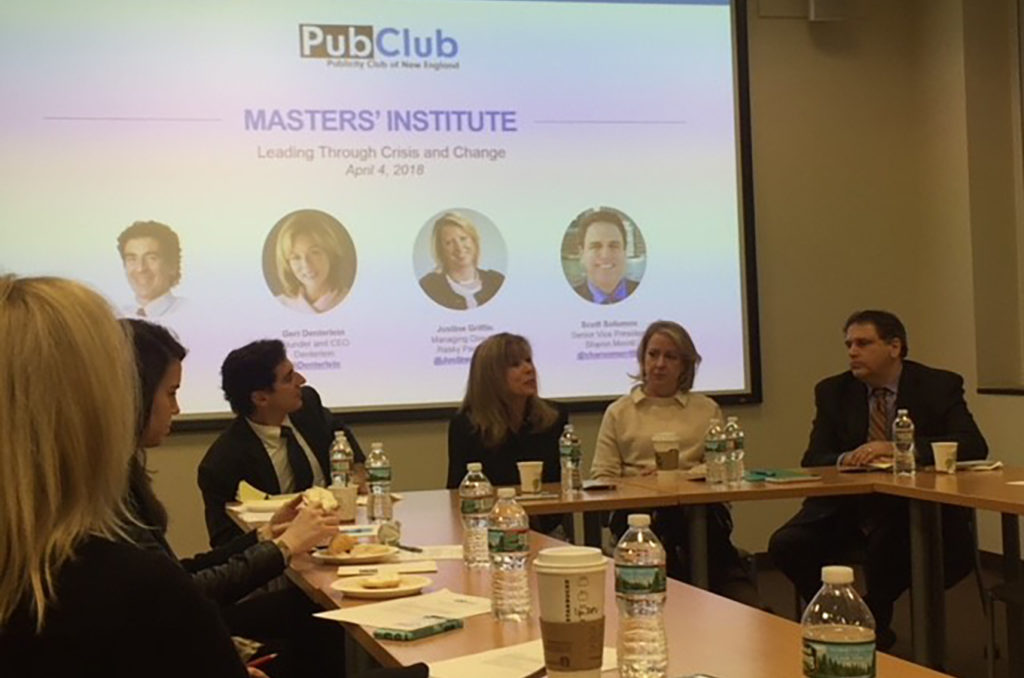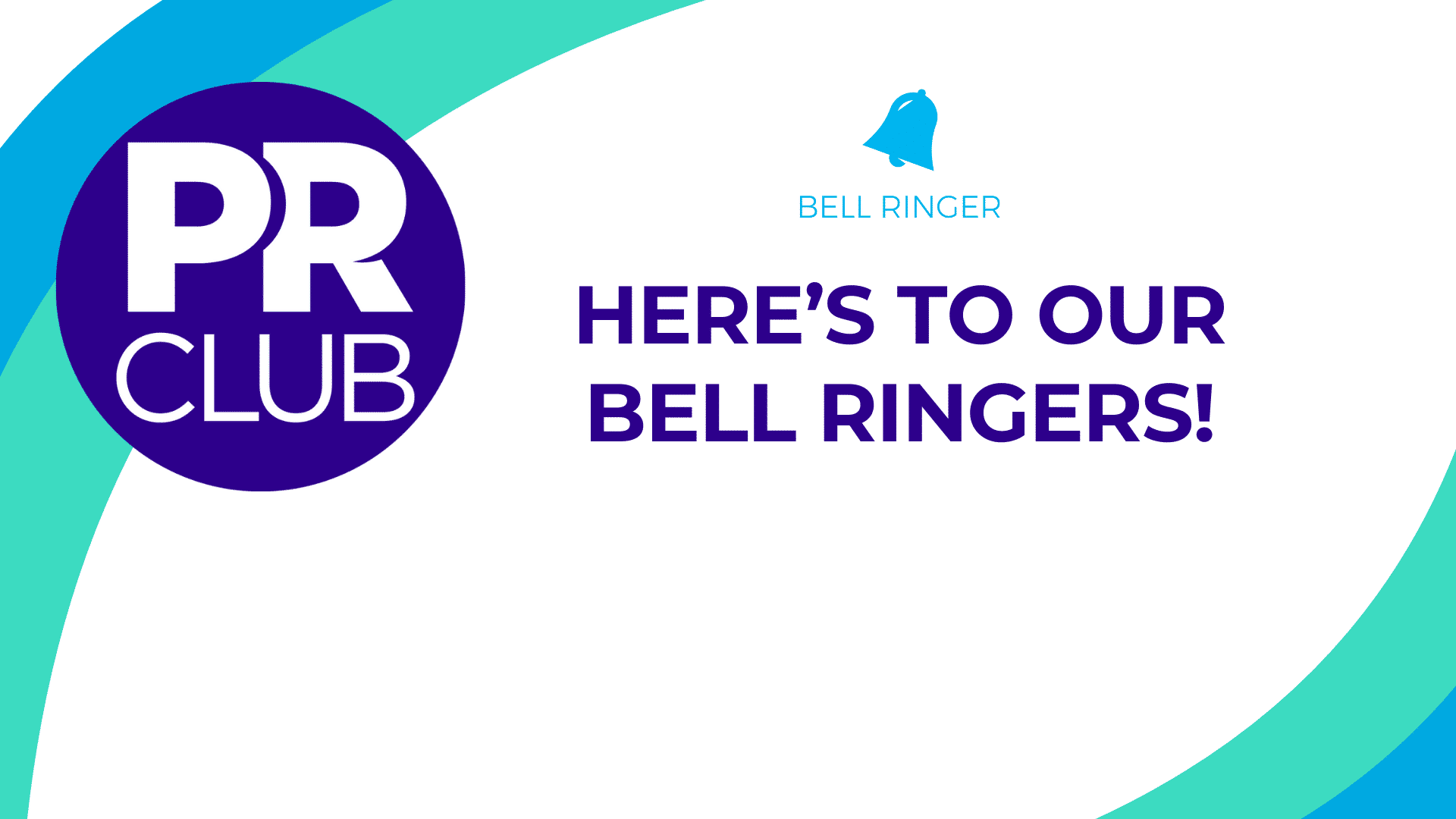What a fantastic time to be in communications! As a function, we continue to find ourselves at the center of key challenges and opportunities at our organizations and on behalf of our clients. From weather events, to social issues, cyber hacks, brand missteps and geopolitical unrest; communicators are called upon to respond to crises and reset organizations to enable them to move forward.
Our most recent Masters’ Institute event pulled together a panel of experts from across the industry to discuss how leaders can harness their expertise to navigate through to the other side of a crisis or significant market change.
Geri Denterlein, CEO and Founder of Denterlein, Justine Griffin, Managing Director at Rasky Partners, Scott Solomon, SVP at Sharon Merrill, and Jon Chesto, business reporter from The Boston Globe led an engaging discussion that provided critical insights for us all to consider.
Five Highlights from the Conversation:
- Never underestimate the importance of crisis preparedness: All of our panelists were adamant about the importance of planning. Planning for a crisis is critical to minimize business and market disruption. As communicators, we need to advise our organizations and clients to take the time to gather stakeholders and create reaction plans well in advance, before something goes sideways. Planning not only builds trust and confidence but also provides a foundation for a potential rapid response and creates awareness of the full scope of possible implications. The moment a crisis occurs is not the time to figure out who you need to talk to in IT or security. Measure twice, cut once.
- Remember employees are brand ambassadors: When reputation is at risk, your employees can be a loud and powerful advocate – if they are informed and made to feel part of a culture of trust and transparency. Two words: Market Basket.
- Channel to channel: Justine Griffin highlighted the importance of responding to a potential challenge in the forum where the challenge began. For example, if a customer tweets a complaint, it is important to respond via Twitter – and if possible keep the exchange within that medium to support awareness that the organization listens to its customers and works to find solutions.
- Don’t underestimate the power of emotions: We can all probably think of a time, personally or professionally, when we may have reacted poorly when stressed. Geri Denterlein made the point that, often under extreme pressure the calm, steadfast CEO can become emotional and reactive. It is key to build a rapport of trust and respect so that as a communicator you can redirect that energy. And of course, see #1.
- Role and responsibility of the media: During a crisis the influx of media inquiries can often overwhelm. Our panelists, including Jon Chesto, unanimously agreed that it is the job of the communicator to remind executives what the role of the reporter is, and reiterated the importance of providing as much factual information in as timely a manner as possible. This is when tone and authenticity matter most – a time of crisis is not the time to be arrogant or elusive because the truth always comes out.
The conversation covered a variety of other topics including the risks associated with “off the record” and “on background” discussions with reporters. The panelists also offered countless lessons learned from the front lines of many crises we have all witnessed play out in the media.
What are some of the principles that you adhere to as part of your crisis communications planning?
Follow us at @PubClubofNE so you don’t miss the next Masters’ Institute event.




